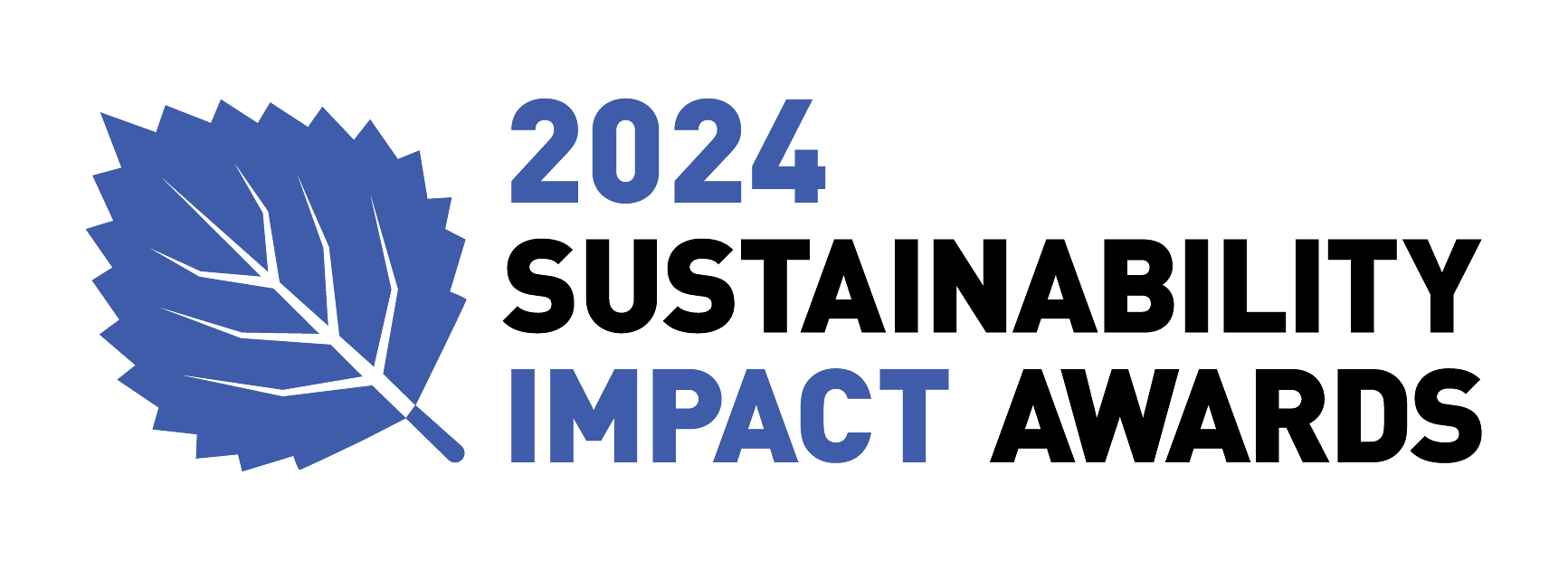AS A telco, Singtel has played a crucial role in connecting people and businesses, and allowing them to take advantage of the benefits of digitalisation.
Beyond its core businesses, the company has gone the extra mile to improve digital literacy, online well-being and safety through its suite of digital-enablement initiatives.
For its efforts to uplift the community through digitalisation, innovation, capacity building and philanthropy programmes, Singtel was handed the Impact Enterprise of the Year Award (Large Enterprise) at the inaugural Sustainability Impact Awards organised by The Business Times and UOB on Thursday (Aug 3).
Singtel group chief executive Yuen Kuan Moon said the company’s initiatives are meant to reach vulnerable segments of society, such as children, youth, seniors, persons with disabilities and disadvantaged families.
“One significant area we’ve focused on is digital enablement and inclusion. This is because with the proliferation of technology, we recognise that some groups risk getting left behind and excluded digitally,” he said.
One such initiative is the Singtel Digital Silvers programme, which was launched during the pandemic to equip more seniors with smartphone skills. Such skills included how to make healthcare appointments online, make video calls to stay connected with friends and attend video conferences through Zoom for online events.
The four-week programme, which was supported by the Infocomm Media Development Authority and NTUC Health, was run by volunteers, 800 of whom were Singtel staff volunteers.
Yuen said that by contributing their time and expertise, staff volunteers not only make a difference in the community but also experience personal and professional growth.“Our employees develop a deeper understanding of the challenges faced by vulnerable segments of society and cultivate valuable skills such as empathy, adaptability, and effective communication.”
He added that Singtel employees can take at least a day to volunteer for a cause of their choice, and that 20,000 volunteering hours were contributed by employees in its last financial year.
With one-on-one attention, volunteers could focus on the needs of each senior and give them personalised guidance. The programme eventually reached more than 7,000 seniors, with 65 per cent saying they gained more confidence navigating the digital world, the company said.
The volunteers also found that with social media and online streaming apps, seniors were better able to cope with isolation during the pandemic as they picked up cooking skills and connected with loved ones.

Singtel has also started the Donate Your Data programme, which allows the company’s Gomo customers to donate their unused data to seniors through an app. Gomo is a subsidiary of Singtel which offers contract-free mobile plans.
Since the programme’s launch in 2022, 36,000 Gomo customers have donated over 1.5 million gigabytes of data.
Another area that Singtel focuses on is digital parenting. The company supported Touch Community Services in creating Help123, a one-stop platform that addresses cyberwellness issues through webinars as well as its hotline and e-mail channels.
Singtel said that it has invested over S$1 million into Help123 since it was launched in 2017, with more than 10,000 parents and youths benefiting from it in the past two years.
In Australia, the company has also conducted in-person and virtual workshops which help children learn the importance of cybersecurity, how their actions shape their online identity, and how they can seek help when they are cyberbullied. In 2022, 80,000 students attended such workshops.
Such workshops are part of Singtel’s Optus Digital Thumbprint Programme, which has engaged more than half a million students, teaching them about cybersecurity, digital discernment and other topics as they navigate the Internet.
Meanwhile, the company’s flagship corporate philanthropy programme, the Singtel Touching Lives Fund, has raised more than S$54 million since it was established in 2002. The company said that, on an annual basis, the fund helps over 3,000 students with special needs assimilate into society and live independently.
Under the fund, Singtel hosts the Singtel Carnival, an annual event that engages students from special-education schools for a day of fun, food and games. In 2022, the company hosted about 2,000 students from 18 special-education schools at Singapore Expo, the largest turnout since the event was introduced in 2013.
Angela Lee, principal of ASPN Chaoyang School, said that students “keenly” look forward to the event each year, when they can enjoy themselves and make friends with students from other schools.
“Fun aside, it allows our students to develop their social skills and gain self-confidence, while interacting with the caring Singtel volunteers who accompany them during the carnival,” she said.
Singtel also raises funds through its charity golf event with the support of its business partners.
The company raised S$1.2 million for the Touching Lives Fund in 2022, which went towards supporting primary, secondary and post-secondary level programmes at its six adopted special-education schools.
Furthermore, the company is a founding member and co-chair of the Singapore Business Network on Disability (SBNoD), which is a community of businesses that advocate for inclusion of persons with disabilities.
“Singtel also contributes to the Enabling Masterplan 2030 as a committee member, shaping the government’s vision for an inclusive Singapore,” the company said. “This involvement informs our work as the co-chair of SBNoD, where we collaborate with businesses to increase employment opportunities for persons with disabilities.”
The company has also been in partnership with SG Enable since 2014 to champion disability employment.
Together, they set up the Singtel Enabling Innovation Centre, which serves as a community space where experts can assist individuals with disabilities in leading independent lives through the use of enabling technologies and skills training.
Yuen said that the company has digitally enabled more than 840,000 people since 2015, and aims to help a million people by 2025.
“By leveraging our core competencies, Singtel aims to make a positive and sustainable impact on individuals, communities, and society as a whole, to provide equal opportunities and access for all, ensuring no one is left behind,” he said.
Innovation for sustainability
In a bid to meet community and social needs with innovative solutions, Singtel has also organised its Singtel Future Makers programme to support startups in areas such as healthcare, education, environment and inclusion.
Since 2016, the programme has invested S$5 million to support over 80 local and regional social impact startups, while also providing them with mentorship and coaching with subject-matter experts to help with their business value propositions.
Last year’s finalists included WeWALK, a startup that received the programme’s voter’s choice award of S$30,000. It aims to create a smart walking cane and app that can detect above-ground obstacles with ultrasound, while still retaining the feedback of standard walking canes.
The smart walking cane’s other features include helping the visually impaired find public transport options, navigate to stops and check timetables.
Another finalist, Moon Technologies, secured an additional US$35,000 which was sponsored by Qualcomm. The company aims to create augmented-reality smart glasses for paramedics that can display a patient’s vital signs and medical information.
Yuen said: “This collaborative mindset also applies to the development of our products and services. By forging partnerships with innovative organisations, we can tap their expertise and capabilities.”
Climate impact
Singtel has also committed to reducing the company’s impact on the climate.
The company said in its sustainability report in June that it will bring forward its net-zero targets by five years to 2045.
To meet these updated targets, the company has also updated its 2030 science-based targets, pending validation from the Science-Based Targets Initiative (SBTi), to align the company with the 1.5 deg C target set out in the Paris Agreement.
Yuen said that to achieve the company’s net-zero target, it has focused on reducing energy use, improving energy efficiency and increasing the proportion of electricity consumption backed by renewable sources.
In the area of reducing energy use, the company has decommissioned legacy 3G infrastructure in Australia, which led to a 13 per cent decrease in electricity consumption.
The company has also upgraded its telecoms equipment to be more energy efficient and reduce electricity consumption.
With Singtel’s new 5G network, its sleep function is enabled so that the 3.5GHz wavelength can be turned off during the maintenance period every night.

In its effort to reduce greenhouse gas emissions, the company has also electrified its fleet in both Singapore and Australia. Currently, 30 per cent of its Singapore fleet comprises electric vehicles.
It has also deployed solar panels across four locations in Singapore, which can produce 1.38 megawatts of peak power.
Furthermore, Singtel has retired 55,450 renewable-energy certificates across both Singapore and Australia. This means that the certificates, which certify that energy has been produced with renewable sources, can no longer be sold by the company.
Beyond larger changes that the company has made, it has stepped up efforts to educate and rally its staff through activities such as tree planting and e-waste recycling drives.
“This year, we focused on equipping our people with sustainability knowledge on greenhouse gas accounting, green products and sustainable procurement through workshops as well as new e-learning modules for those based in Singapore,” Yuen said.
While Singtel reduces its carbon footprint, it has also sought to improve the well-being of vulnerable segments of society.
To do so, Singtel has partnered with Engineering Good, a startup that refurbishes laptops and mobile phones that the company collects through a device donation drive. This reduces the carbon footprint of new devices and helps build a more digitally inclusive community.

So far, 840 kg of devices have been refurbished and donated to seniors and low-income families, the company said.





